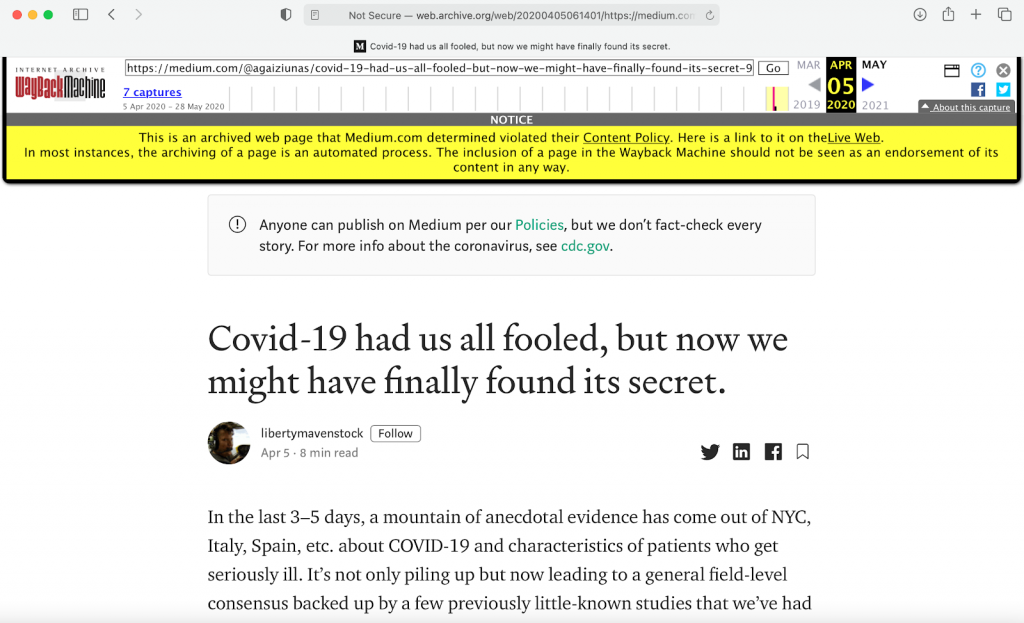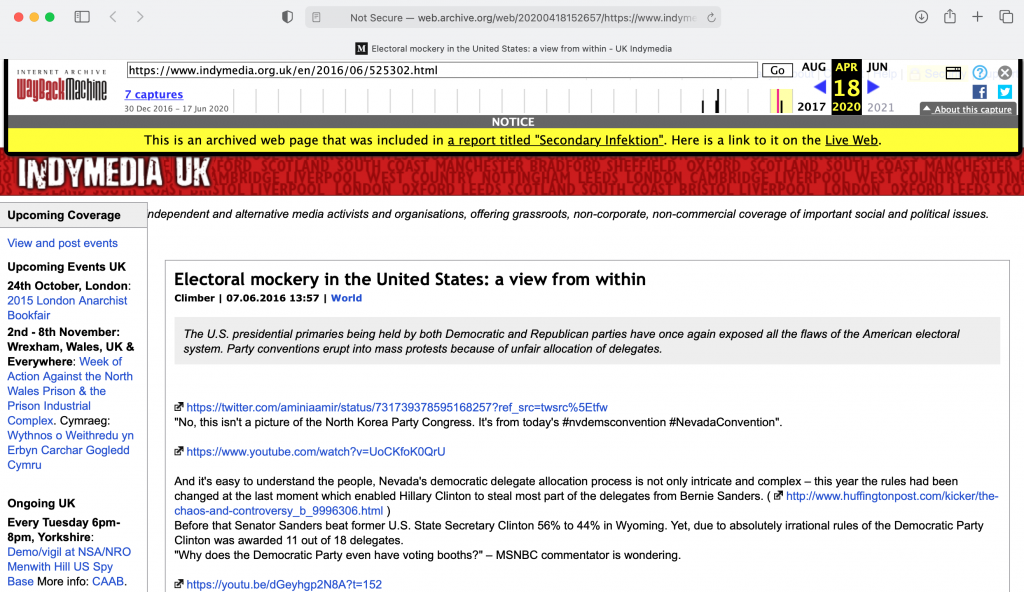Wayback Machine will now fact-check archived webpages

Fact-checking has become one of the most popular ways to fight disinformation online. You can see it in action on sites like Facebook and Twitter, where certain posts now come attached with annotations for context.
Some believe these moves are a form of censorship by social media companies. Like health professionals, others say it’s the best way to stop disinformation from going viral and harming people. Tap or click here to see how Facebook blocked the spread of a viral COVID-19 conspiracy theory.
Social media sites aren’t the only ones doing fact-checking these days, either. The Internet Archive has announced that it’s adding fact-checks to its catalog of old and deleted web pages. Will this be enough to stop debunked conspiracy theories from coming back to life?
A silver bullet for zombie disinformation?
Internet Archive is the web’s biggest library of digital material. Its most famous feature, the Wayback Machine, lets you search for nearly any webpage to see how it looked in the past. You can even use the Wayback Machine to see websites and content that no longer exist online.
This brings up a scary question: When websites delete misinformation and conspiracy theories, where do they go? As it turns out, you can still find plenty of them with the Wayback Machine.
That’s why the Internet Archive announced it would start fact-checking archived pages to prevent them from being misused or misunderstood.
In a new blog post, the Archive outlined how it would be adding banners to the top of webpages with fact-checks and context. This will provide more accurate information to researchers without censoring the pages themselves.
One example the blog post shows is a deleted Medium post about COVID-19. The post was originally removed for violating Medium’s rules, but old versions of the archive would not have included that context. With this update, anyone reading the page will know it broke the rules.
Another example involves a disinformation campaign that was caught in the act. Researchers at Graphika discovered this site was part of a Russian government effort, and their report is now included in the yellow banner at the top of the archive.
Tap or click here to see how Russia and Iran are interfering with the 2020 election.
How do I know if I’m reading disinformation or not?
Fact-checks like what you see above are designed to help you tell real stories from fake or misleading ones. But articles and websites may still slip through the cracks despite the best efforts of content moderators.
The next time you’re reading the news or scrolling through your social media feed, use these tips to spot disinformation before it has a chance to trick you:
- Watch for sensational or provocative language: Disinformation will often contain language designed to rile you up. If you read a story that makes you sad, angry or fearful, ask yourself why this is happening. It might be intentional on the part of the author.
- Keep an eye out for spelling and grammar errors: A good chunk of disinformation comes from foreign sources like Russia. Spelling and grammar errors are obvious red flags that what you’re reading may not be authentic.
- Check the source: Verified press outlets employ fact-checkers and researchers to separate fake stories from real ones. Some websites, on the other hand, publish anything that generates clicks from their audience. If you see an article that sounds too good to be true, check the website hosting it. Sites with names like “realtruenewsupdates.ru” are probably not legitimate.
- Consider the context: Overly provocative stories that appear during major disasters or public events may be disinformation. Ask yourself, “why now?” when you encounter a post that looks suspicious.
Content moderators can only go so far to protect us from disinformation. Be vigilant and watch for obvious red flags if you want to stay informed. It’s all too easy to get swept up by fake news these days.
Tags: Archive.org Wayback Machine, censorship, conspiracy theories, disinformation, fact-checking, fake news, internet, Internet Archive, misinformation, online, social media, viral


